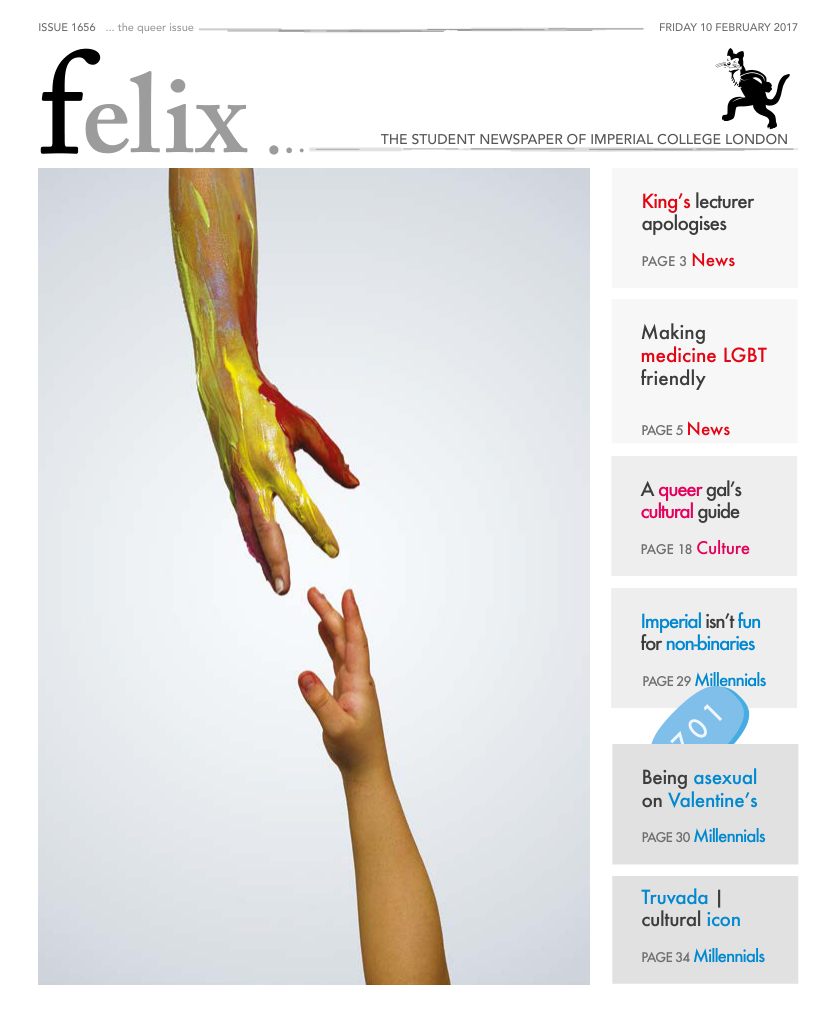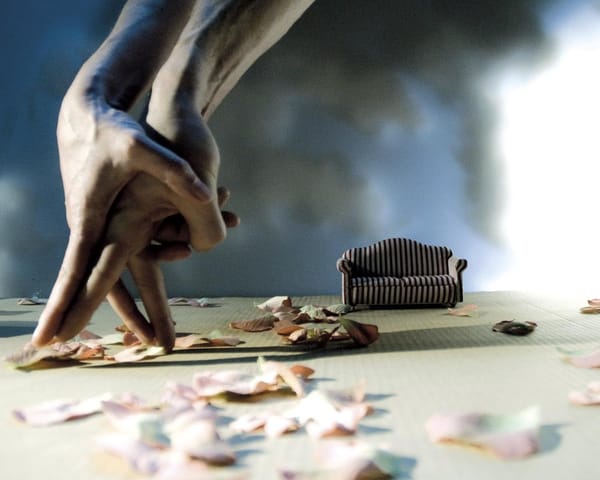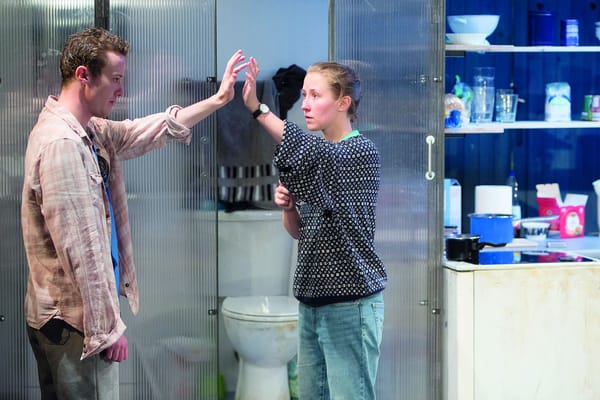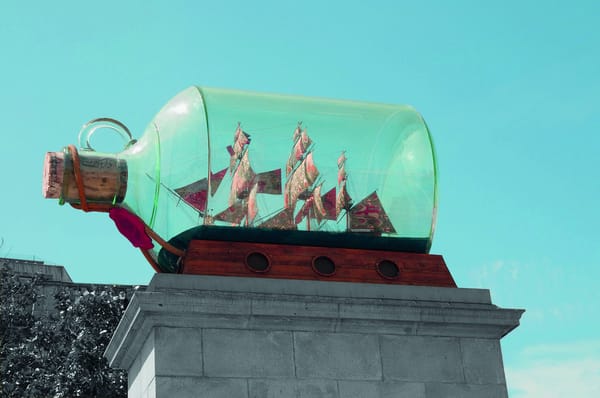Rigoletto | Singers outshined by set
It’s never a good sign when the set outshines the main cast
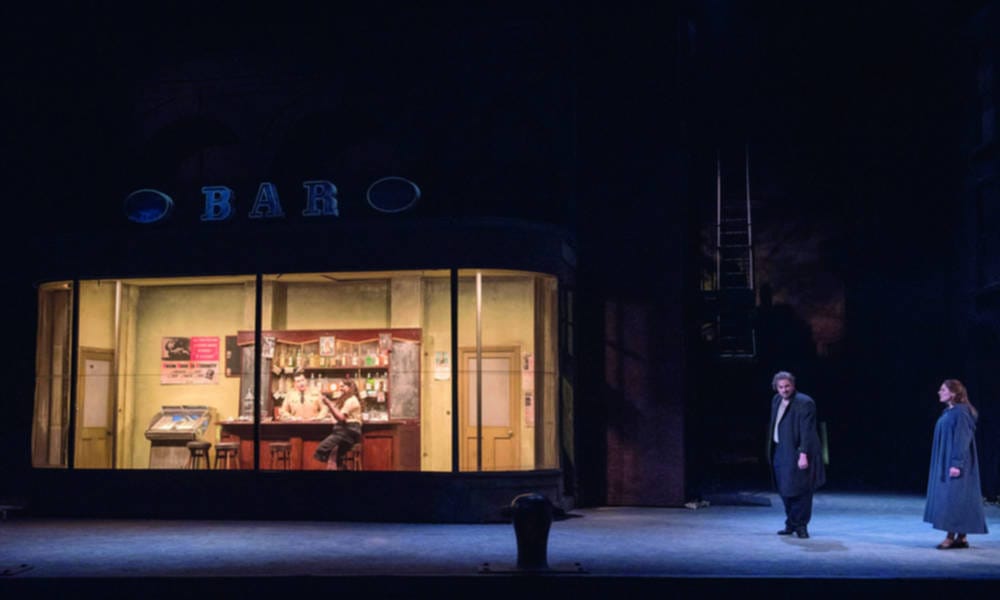
It’s never a good sign when the set outshines the main cast. Unfortunately for the ENO’s latest rendition of Jonathan Miller’s superbly conceptualised Rigoletto, this is very much the case. Miller takes us back to 1950s New York City, in the shadier Mafia-dominated parts of Little Italy. It is a curiously appropriate retelling of the drama of Rigoletto: powerful men, a woman (or several), and an assassination plot fit right into the scene. The philandering Duke and his posse of henchmen are easily transposed from nobility to gang life; the titular court jester, Rigoletto, becomes a bartender at the bar they frequent. His daughter Gilda remains the innocent girl unaware of the menacing world around her, and her ill-usage at the hands of the Duke and his men point to the subordinate role of women in a very much male-dominated world. The Duke’s henchmen exclaim over Gilda’s pure and innocent beauty, but have no qualms kidnapping her for revenge on Rigoletto; the Duke himself professes concern for his “beloved angel”, but does not hesitate to rape and abandon her afterward. Sparafucile, the contract killer hired by Rigoletto in his vendetta against the Duke, is perhaps even more at home with a fedora and a switchblade than he was in Verdi’s 16th century Mantua.
The first performance of this production was in 1982, but the set seems as fresh as ever. A stylish bar – all oak panelling and mirrors – serves as the Duke’s headquarters. The hordes of suit-clad henchmen in sunglasses lend a distinct Men in Black air to the scenes. As Rigoletto leaves the bar for his home, the shadowy figure of Sparafucile emerges from a dark and foggy alleyway to make his proposition. The set of the last act provides a great contrast between the well-lit tawdry bar in which the Duke flirts with Sparafucile’s sister Maddalena, and the thunder and lightning outside as Gilda looks on, steeling herself for a fatal sacrifice.
If only the cast lived up to these promising surroundings. The three main roles are sung by American singers imported from across the pond, but none of them are particularly outstanding. Playing the Duke, Joshua Guerrero’s voice was too phlegmatic to make either a convincing mafia boss or a compelling Casanova. Worse still was Nicholas Pallesen, whose Rigoletto fell terribly flat. It felt like he was merely declaiming his lines with no emotion behind them; instead of moving the audience to horror and pity, Pallesen succeeded only in arousing faint boredom. Apparently he was suffering from a cold on opening night, but whether he can bring out the role’s full potential remains to be seen. Sydney Mancasola was perhaps the saving grace, with her clear but somewhat timid voice quite suited to the role of Gilda. Perhaps ENO should just stick to British singers – Barnaby Rea deserves a special mention for his brooding Sparafucile, as does Madeleine Shaw for her provocative Maddalena.
This run of Rigoletto has almost everything going for it: great direction, great set, the 13th revival of a well-loved production. But it is undoubtedly hampered by its uninspiring cast. Jonathan Miller’s Rigoletto has the potential to be a crowd-drawing classic – if only ENO finds the right people for the job.
Rigoletto is on at the ENO until the 28th of February. Tickets from £12.

